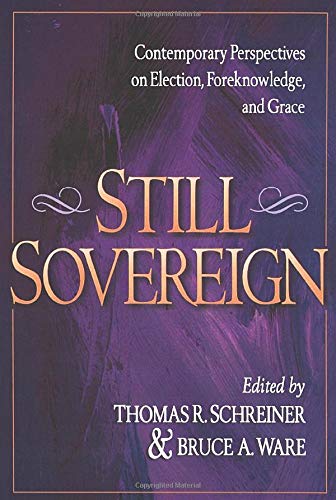A Brief Book Review from Books At a Glance
by Mark Baker
In 1989, Clark Pinnock edited a book called The Grace of God and the Will of Man. This work included essays by key evangelical thinkers who argued from an essentially Arminian perspective. In 1995, Thomas Schreiner and Bruce Ware responded to Pinnock’s work by editing a two-volume work called The Grace of God, the Bondage of the Will. Five years later, the work was condensed into one volume, now called Still Sovereign. The book addresses exegetical issues (part 1), theological issues (part 2), and pastoral reflections (part 3). The thesis of the book is that the Calvinist perspective on the Bible is more exegetically accurate, theologically responsible, and pastorally helpful than the Arminian perspective.
Before moving on, I will address the elephant in the room. Why am I reviewing a book that is now more than two decades old? The answer is simple: a handful of the essays in this book remain some of the most important treatments on the topic in the last 25 years. Thomas Schreiner’s chapter on the Wesleyan doctrine of prevenient grace is the crown jewel of the book. His description of Wesley’s doctrine of prevenient grace is thorough and charitable, yet he decisively dismantles the arguments of his conversation partners. Though the doctrine of prevenient grace might be logically consistent, Schreiner effectively shows that it can nowhere be found in Scripture.
John Piper’s chapter on “two wills in God” stands out as another essay with theological longevity. Building on the distinction between God’s “will of decree” and his “will of command,” Piper shows how God’s universal love does not negate his electing grace. For Piper, texts such as 1 Timothy 2:4, 2 Peter 3:9, and Ezekiel 18:23 refer to God’s “will of command,” which can be broken. Piper ably shows that Calvinists don’t need to downplay God’s universal love; universal love and electing grace are not mutually exclusive.
Other essays are also worth reading and re-reading: D.A. Carson’s work on assurance (chapter 10), S.M. Baugh’s treatment on foreknowledge (chapter 7), and Sam Storms’ chapter on prayer and evangelism (chapter 13) stand out as particularly worthwhile.
I have only a few quibbles with the book. For example, Wayne Grudem argues that the warning passage in Hebrews 6:4–6 does not describe a genuine Christian, but rather someone who knows about Jesus and has ultimately rejected him. While his attempt to defend the doctrine of perseverance of the saints in Hebrews is valiant, some of his arguments appear to descend into the territory of special pleading (e.g. 147, 149). Ironically, Schreiner himself has produced a much better Reformed option in his 2001 work, The Race Set Before Us. Though I find Grudem’s view problematic, it is still the majority view in Reformed circles, and it is probably the most developed articulation of that position.
As much as I respect J.I. Packer and his impressive theological corpus, his essay on the love of God perhaps relies too heavily on surface-level word studies and assumes (rather than argues) that the word agape always refers to Christian love (275; see Luke 11:43 as a counterexample). Nevertheless, the chapter is still quite profound and edifying.
These minor quips aside, Still Sovereign deserves a prominent place on the shelves of pastors, students, and educated laypeople. It is a treasure trove of theological insight and practical help.
Mark Baker (PhD, Southeastern Baptist Theological Seminary) serves as director of the Heart of Texas Foundation | College of Ministry, located in Houston, TX.
Copyright 2021, Books at a Glance
Books at a Glance book summaries are available by subscription only and except for brief quotes may not be reproduced, in whole or in part, without express, written permission.
